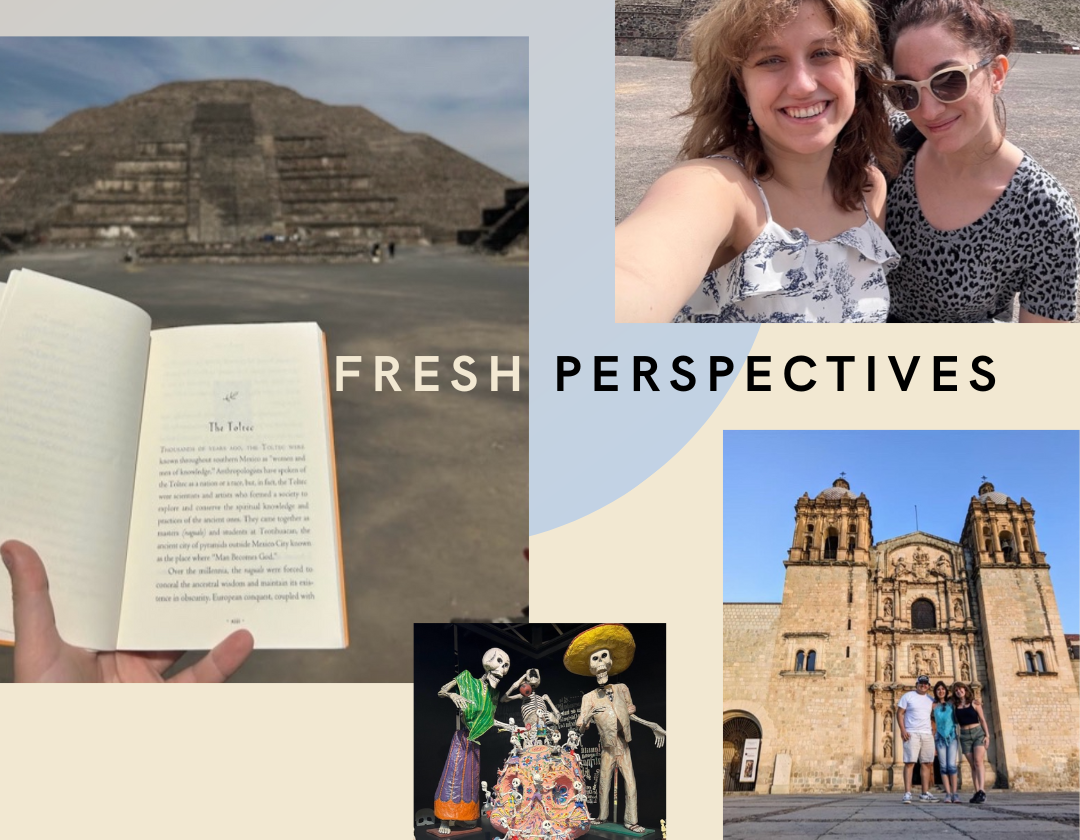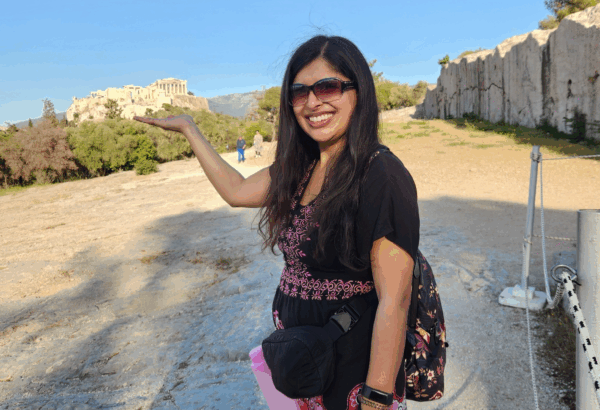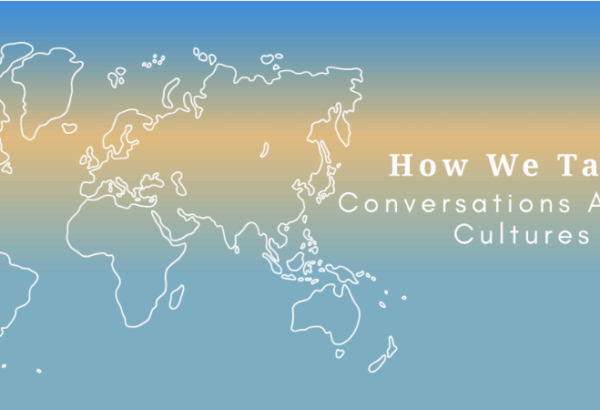In my life, I’ve been self-centered—as is typical. As humans, we focus on our own needs and lives more than any other individual’s. Very generally speaking, this focus serves as a gateway to the intricate process of crafting our identity, or “sense of self.” In psychology, sense of self refers to a person’s perception of their own being—encompassing self-awareness, self-image, and the continuity of one’s existence across time. It’s foundational for cognitive development and interpersonal relationships, and it’s important during adolescence and early adulthood. I first found out about this research topic while I was in Santiago, Chile for study abroad last spring while talking with SNF Paideia Dialogue Director Dr. Sarah Ropp about my next steps post-graduation.
This interest quickly turned into a personal reflective journey… I took “Mindfulness and Human Development,” a SNF Paideia course taught by Dr. Elizabeth Mackenzie, in hopes of developing my own sense of self. I wrote my final paper for the class on this very idea, and I found that—in the context of mindfulness—sense of self is only half of the puzzle to achieving personal peace. The other half is about having humility: in class, we learned about Buddhist monk Thich Nhat Hanh’s concept of “interbeing” (everything in this world is interdependent; nothing exists in isolation). After the course, I was curious about how a humble sense of self functions in other cultural contexts.
I knew that I wanted to continue researching, and I knew I wanted to do so in Latin America. For one, it represents a different cultural environment from the one I grew up in. Additionally, I speak Spanish, and the SNF Paideia Program had already supported my abroad experience in Chile through internship sponsorship. I felt as though this would be my last chance to do research with SNF Paideia, so I applied to do a project in Mexico. Armed with several books related to mindfulness and Mexican history—including “The Four Agreements” by Don Miguel Ruiz—I aimed to learn about sense of self through conversations and public art. My takeaway from the trip is as follows: I am utterly unimportant.
If this sounds harsh, let me explain. Though I’ve been learning how important it is to have our own strong sense of self, it is equally, if not more, necessary to be humble. We’ve all heard about looking up at the stars and remembering how “small we really are,” and most people I know have been told to “touch grass” before. But no matter how many times you remind yourself that this thing or that won’t matter in thirty years, nothing compares to the lessons learned when you simply get humbled. Maybe this opinion is partly due to the lessons instilled by the books I read in Mexico, but the primary way I’ve seen this humility develop is through traveling.
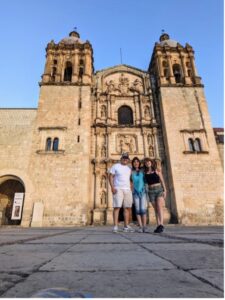 Between my time in Chile and this more recent trip, my world keeps becoming larger. I attribute this growth to my dialogue projects with the SNF Paideia Program. Advancing learning about and how to dialogue, these projects have granted me a number of intercultural and exchange opportunities. I’ve been given the opportunity to meet hundreds of people whose lived experiences and backgrounds are completely different from my own… which, in all, has forced me to get pretty humble. As one example, simply traveling by myself—making all my interactions one-on-one and leaving all decision-making up to myself and the will of nearby strangers—fosters humility. One evening at a hostel led me to meet a Wisconsin man who seemed to be having a midlife crisis, a group of luchadores with affinities for drugs I’ve never even heard of, and a scholar from Peru who seemingly is WAY more knowledgeable about the world than I ever will. Not only is meeting people humbling, but the situations are, too. In one of the aforementioned hostels, for example, I held my arm down the back tank of a toilet for a half an hour trying to fix the suboptimal water pressure—as a type of spider I’ve never seen before crawled up my arm.
Between my time in Chile and this more recent trip, my world keeps becoming larger. I attribute this growth to my dialogue projects with the SNF Paideia Program. Advancing learning about and how to dialogue, these projects have granted me a number of intercultural and exchange opportunities. I’ve been given the opportunity to meet hundreds of people whose lived experiences and backgrounds are completely different from my own… which, in all, has forced me to get pretty humble. As one example, simply traveling by myself—making all my interactions one-on-one and leaving all decision-making up to myself and the will of nearby strangers—fosters humility. One evening at a hostel led me to meet a Wisconsin man who seemed to be having a midlife crisis, a group of luchadores with affinities for drugs I’ve never even heard of, and a scholar from Peru who seemingly is WAY more knowledgeable about the world than I ever will. Not only is meeting people humbling, but the situations are, too. In one of the aforementioned hostels, for example, I held my arm down the back tank of a toilet for a half an hour trying to fix the suboptimal water pressure—as a type of spider I’ve never seen before crawled up my arm.
Okay, that last one might be a bit much; there are surely lesser examples that elucidate this point. That being said, these are some of the experiences that have expanded my consciousness beyond my internal voice. It’s not that my personal narrative and understanding are not valuable, but rather that I must understand where my self is situated within the much bigger world. That is to say, a developed sense of self does not implicate self-importance; this strength is complemented by deep humility.
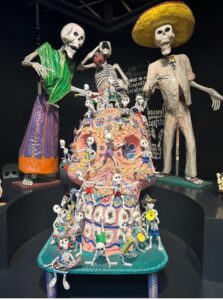
I’m a soon-to-be graduating senior at Penn, and I think most students here are equipped with a developed sense of self—at least with regard to academic and professional development. Many of us are ready to pitch ourselves to employers in a matter of seconds, have well-established areas of interests and accomplishments, and have written many application essays about what inspires us—about why we are the way we are. It’s this self-awareness, paired with the humility we can foster, that should be further considered by us students in our very, very privileged positions. Travel is one way to gain that humility. I’m not talking about spring breaks at resorts, but rather hand-in-the-toilet-I-think-I’m-breaking-the-plumbing type experiences. Though we’re just in early adulthood, we already have enormous privilege and ability. Putting ourselves “out there” to learn, share, and grow is the next step in our journey.

